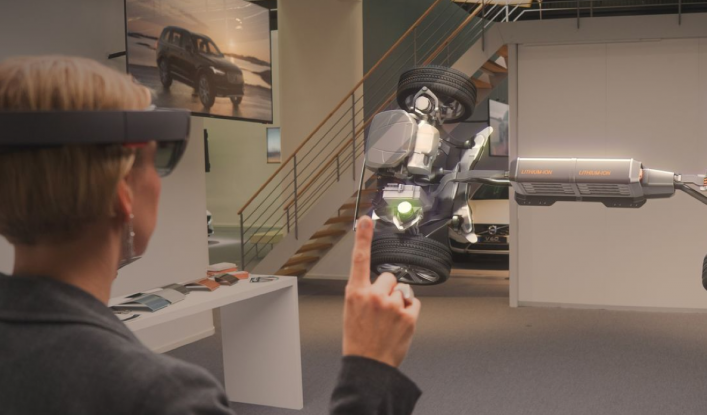
Modeling Simulation and Optimization in the Engineering Product Development Process
- Post by: Tobias Larsson
- 2nd September 2017
- No Comment
NEXT COURSE START
- MArch 2021.
- Register at Kunskapsförmedlingen web site.
BACKGROUND
The course is given by Product Development Academy and is also part of the Production 2030 graduate school.
AIM OF THE COURSE
To give an overview and hands on experience in (a selection) of WHAT can be modelled and simulated in EPD, and what need to be modelled and simulated (trends).
CONTENT
The course is organized in the following way.
The first session is an online meeting, where the course is introduced and the short assignment is presented. The following physical sessions at Chalmers, BTH and LiU provide a condensed mix of theory, hands on exercise and industry input through guest lectures. By necessity, the course will provide a “look and feel” introduction to the specific techniques introduced, with the opportunity to engage deeper in some part in the course assignment.
The final physical session (Linköping) also include a presentation and discussion session of all assignments conducted during the course.
The assignment is further expected to be submitted no later than three weeks after the final session.
- 1st session: Course introduction (via web link), dd March 2022: 15.00-16.30
Content: Course introduction (topic, readings and assignments). Introduction of literature and software to be used. Confirmation of all dates. - 2nd session: Modeling behavior and functionality
Venue: CHALMERS, Göteborg
Content: Modeling and simulation to understand product behaviour (functions, value, robustness, manufacturing). Industrial state of art example. - 3rd session: Model Based Development
Venue: BTH, Karlskrona
Content: CAE, Digital Twins, model based development, optimization
Aim: To give an overview of- and hands on experience of- HOW modelling and simulation are used in EPD. Concepts of validity, quality and digital verification are explained together with an introduction to optimization and multidisciplinary engineering. - 4th session: Multi-disciplinary modelling and optimisation, course project presentation
Venue: LiU, Linköping
Content: multi-disciplinary and multi-objective optimization, surrogate based optimisation. Presentation of course assignments.
OBJECTIVES
Upon completion of the course the participants should have:
- Gained increased knowledge of the roles of modelling, simulation and optimization in the product development process.
- Gained an increased understanding of different type of models used in EPD, from modelling of functionality, via physics based modelling, to modelling of customer value of products and services.
- Improved knowledge about uncertainties in modelling and simulation and increase the ability to perform validation and verification of simulation results.
- Obtained the ability to formulate an engineering design problem as an optimization problem and solve it using adequate optimization algorithms.
- Improved ability to communicate orally and in writing the role of modelling, simulation and optimization in the EPD process in a research context.
- The course is organized in 4 events, three physical and one web based.
LEARNING AND TEACHING
The course consists of lectures, theoretical work and a practical course project. The course is taught in English.
ASSIGNMENT AND GRADING
The course is examined through active participation at the workshops/sessions, presentation of course assignments at the workshops and with the written report delivered at the end of the course.
The three professors Isaksson, Ölvander and Larsson assess each student’s participation and work and Ola Isaksson is the course examiner.
In addition, colleagues at Chalmers, BTH and LiU will be engaged in specific sections.
COURSE EVALUATION
The course responsible is responsible that the doctoral student have the opportunity to comment on the course.
LITERATURE
TBC
COURSE RESPONSIBLE
The main teachers are (other experts in the field will be involved and invited):
- Tobias Larsson, Professor in Mechanical Engineering, Blekinge institute of technology. Tobias.larsson@bth.se
- Ola Isaksson, Professor in Product Development, Chalmers university of technology. Ola.isaksson@chalmers.se
- Johan Ölvander, professor in Engineering Design, Linköping university. johan.olvander@liu.se
SCHEDULE
The course, that is national, consists of three physical meetings and one web based, individual (our group) work in between the meetings. Web meetings held in Adobe Connect at https://connect.sunet.se/mdo.
- 1st session Course introduction 30/1 2018 (WEB)
Time: 14.00-16.00
Content: Course introduction (topic, readings and assignments). Introduction of literature and software to be used. Confirmation of all dates. - 2nd session: Modeling behavior and functionality (13-14 Feb)
Venue: CHALMERS, Göteborg
Content: Modeling and simulation to understand product behaviour (functions, value, robustness, manufacturing). Industrial state of art example.
Aim: To give an overview and hands on experience in (a selection) of WHAT can be modelled and simulated in EPD, and what need to be modelled and simulated (trends). - 3rd session: Model Based Development (6-7 March)
Venue: BTH, Karlskrona
Content: CAE, Digital Twins, model based development, optimization
Aim: To give an overview of- and hands on experience of- HOW modelling and simulation are used in EPD. Concepts of validity, quality and digital verification are explained. - 4th session: Multi-disciplinary modelling and optimisation, course project presentation (27-28 March)
Venue: LiU, Linköping
Content: Modelling of safety, reliability and system functionality, multi-disciplinary engineering and optimization, multi-objective optimization, surrogate based optimisation. Presentation of course assignments.
Aim: To give an overview of system level – and multi-disciplinary optimisation applications. Present / discuss course outcome.
APPLICATION
Via Kunskapsförmedlingen.
INFORMATION
For more information, please contact;
Tobias C. Larsson
Professor
Product Development Research Lab, Mechanical Engineering
Blekinge Institute of Technology
tlr@bth.se
+46 (0)455 38 55 25



